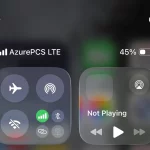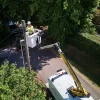Vodafone UK Harness Quantum Tech to Help Build and Upgrade Networks

Mobile operator Vodafone has today announced that they’ve agreed a new partnership with UK-based quantum company, ORCA computing. The deal will see the network provider harnessing quantum technology to help them quickly map out the fastest and cheapest route when building and upgrading future mobile and fixed broadband networks.
Major national network operators often have to manage some incredibly large and complex networks. At the same time, there’s always pressure for network planners to identify the fastest and most cost-effective routes for upgrading and extending fixed and mobile broadband connections to more customers.
However, Vodafone sees Quantum computing as having the potential to handle more complex processing tasks than a classical computer, such as when planning, installing and optimising large mobile radio and gigabit broadband networks at national scales.
Advertisement
“As the size and complexity of networks grow alongside demand for new digital services, Vodafone is collaborating with ORCA Computing to enhance current mathematical methods used to approximate optimal network layouts. Vodafone’s software will be run on ORCA Computing’s quantum computer – the ORCA PT-2 Series photonic quantum system. The solutions generated by the quantum system could, for example, help reduce total cable length and optimise the location of mobile base stations to maximise speed and minimise major civil engineering work,” said today’s announcement.
Luke Ibbetson, Head of Research & Development of Vodafone, said:
“Our work with ORCA Computing aims to solve ultra-complex problems which otherwise would take many hours, weeks and even years to process on today’s classical computers. Modelling new networks that maximise speed, reliability and coverage for customers, while navigating urban clutter and rural obstacles, could in future take minutes.”
James Fletcher, Head of Solutions Architecture at ORCA Computing, said:
“ORCA Computing’s continued collaboration with the Vodafone team marks an important step toward achieving practical and commercial quantum advantage. We have shown that quantum acceleration of telecommunications use cases is not just a theoretical concept, it’s a viable, deployable and commercially compelling solution.”
The operator plans to initially assess ORCA’s quantum technology for solving complex optical fibre optic cable design challenges, but over time they expect to deploy it more widely, such as when modelling their global network which spans more than 200 destinations (inc. undersea fibre and their future direct-to-mobile broadband satellite communications system via AST Space Mobile).
Vodafone believes that that quantum computing will not only improve the accuracy of network optimisation, but also accelerate the use of machine learning and Artificial Intelligence (AI) to predict faults before they impact customers. At the same time, there may, of course, be cost savings to be found as fewer humans will be needed to perform the same sort of tasks.
Mark is a professional technology writer, IT consultant and computer engineer from Dorset (England), he also founded ISPreview in 1999 and enjoys analysing the latest telecoms and broadband developments. Find me on X (Twitter), Mastodon, Facebook, BlueSky, Threads.net and Linkedin.
« Streetwave to Map 4G and 5G Mobile Coverage Across North Scotland






















































Hmm. I wasn’t aware that quantum computing was commercially available yet. I thought it was all just announcements from labs which other labs would then denigrate. I suspect this is ye olde computing with a splash of marketing on it.
Quantum computers aren’t exactly commercially available yet (still think you have to build your own rather than pop over to the Dell website and order one), but quantum computing services are. ORCA Computing uses the photonics platform for quantum computing (other platforms are available: superconducting circuits/Josephson junctions, neutral atoms, …).
Soon to be announced (exclusive insider news) – a strategic partnership with Hogwarts School of Witchcraft and Wizardry to try and improve their network. Can’t wait!
The big question is if they’ll use quantum, ai, big data, machine learning, crypto, 5G, blockchain, and cloud for this.
BINGO!